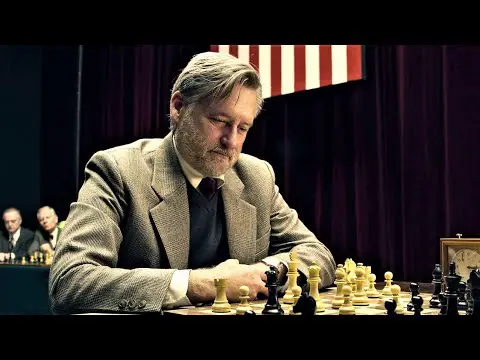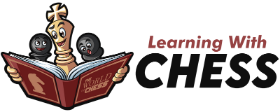Chess in the Cold War
12/02/2023 - Actualizado: 01/05/2023
- Chess in the Cold War: A Strategic Battleground
- Frequently Asked Questions
- 1. What was the role of Chess in the Cold War?
- 2. Why was the Soviet Union so dominant in Chess during the Cold War?
- 3. Were there any specific Chess tournaments during the Cold War that had political implications?
- 4. Did the use of Chess as a tool during the Cold War have any long-term effects on the sport?
- Which mach do you like more the one between Bobby Fischer and Boris Spassky or the one between Garry Kasparov and Anatoly Karpov?
Throughout the history of the Cold War, various events took place that changed the world in many ways. However, little is known about how chess became a vital part of the tension and rivalry between the USA and the Soviet Union. The game of chess was used as a proxy for the ideological, political, and military tensions between the two superpowers. In this article, we will explore the importance of chess in the Cold War and how it played a significant role in shaping the political and cultural landscape of that era.
Chess in the Cold War: A Strategic Battleground
The Role of Chess in the Cold War
During the Cold War, chess was not just a game, but a tool for ideological propaganda, political maneuvering, and intelligence gathering. The Soviet Union saw chess as a way to showcase the superiority of their socialist regime, while the United States used it as a way to counter communist influence and promote American values. The rivalry between the two superpowers spilled over to the chessboard, making it a battleground for political and strategic supremacy.
The Great Chess Duels of the Cold War
Some of the most memorable chess matches of all time took place during the Cold War era, pitting the best players from the Soviet Union against those from the United States and other Western countries. The legendary battles between Bobby Fischer and Boris Spassky, Anatoly Karpov and Viktor Korchnoi, and Garry Kasparov and Anatoly Karpov captured the attention of the world, showcasing not only the sheer brilliance of the players but also the intensity of the Cold War rivalry.
The Impact of Chess on Cultural Diplomacy
Despite its association with political tensions and spy games, chess also played a significant role in cultural diplomacy during the Cold War. It provided a platform for chess players from different countries to interact and exchange ideas, regardless of political affiliations. Chess tournaments, exhibitions, and discussions facilitated cross-cultural dialogue and understanding, making it a unique instrument of peace during one of the most tumultuous periods of modern history.
The Legacy of Chess in the Post-Cold War Era
As the Cold War came to a close, chess lost some of its geopolitical significance but retained its cultural and intellectual value. The game continued to evolve, with new talents emerging from countries that were previously not recognized as chess powerhouses. Chess also became more accessible to the general public, thanks to the advent of computer games and online platforms. Today, chess remains a beloved pastime for millions of people worldwide, a testament to its enduring appeal and timeless beauty.
The Lessons of Chess for International Relations
Chess provides valuable insights into the complexity of international relations, as it involves strategic thinking, risk assessment, and tactical execution. The lessons learned from chess can be applied to real-world scenarios, where decision-making and planning are critical. Chess teaches us to be patient, creative, and adaptable, skills that are essential for success in any field of endeavor. It reminds us that the world is not a zero-sum game, but a complex web of interdependent actors who must learn to cooperate and compete in equal measure.
Frequently Asked Questions
1. What was the role of Chess in the Cold War?
Chess was used as a strategic tool during the Cold War as it provided a platform for countries to showcase their intellectual capabilities and military superiority indirectly.

The battles between the US and Soviet Union were not fought with weapons but with mind games, and Chess was one of the most prominent mind games used. The game served as a proxy war for the US and Soviet Union and was linked to politics and power struggle.
2. Why was the Soviet Union so dominant in Chess during the Cold War?
The Soviet Union was dominant in Chess during the Cold War for a couple of reasons. Firstly, the Soviet government put a significant amount of resources into developing its Chess players by building a network of Chess schools across the country. Secondly, Chess was seen as a symbol of national pride and the Soviet Union invested heavily in the sport to further its political agenda. Lastly, the Soviet Chess culture was rooted in its rich intellectual history and the game was held in high regard by society as a whole.
3. Were there any specific Chess tournaments during the Cold War that had political implications?
Yes, there were several Chess tournaments during the Cold War that had political implications. The most notable of these tournaments was the 1972 World Chess Championship between Bobby Fischer and Boris Spassky. The match was hyped as a battle between the United States and the Soviet Union, and when Fischer won, it was seen as a symbol of American intellectual superiority over the Soviet Union.
4. Did the use of Chess as a tool during the Cold War have any long-term effects on the sport?
Yes, the use of Chess as a tool during the Cold War had a significant long-term effect on the sport. The game became more popular than ever before and Chess players became symbols of national pride for their countries. In addition, countries began investing more resources in developing their Chess players, and the sport became more competitive. Lastly, the Cold War era also gave rise to some of the greatest Chess players of all time such as Bobby Fischer, Garry Kasparov, and Anatoly Karpov.
In conclusion, chess during the Cold War was an intense and politically charged battleground that showcased the ideologies and power struggles of the rival nations. It was a time where chess players became more than just sportsmen, but ambassadors for their countries, and their victories were celebrated as a reflection of their nations' strengths. The rivalry between the Soviet Union and the United States was particularly notable, where chess became a proxy for the larger tensions between the two superpowers. The legacy of this era is that chess proved to be not just a game, but a tool for diplomacy and a reflection of the wider geopolitical environment.
Which mach do you like more the one between Bobby Fischer and Boris Spassky or the one between Garry Kasparov and Anatoly Karpov?
⭐️ If you want to know more about other articles similar to Chess in the Cold War you can visit our category Chess History. We are waiting for you inside 👍


Leave a Reply